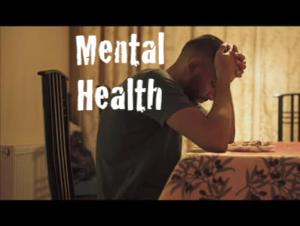I think that when people argue as to what degree should we integrate with psychological theories they perhaps sometimes miss an important aspect of people and their problems.
In my view most peoples problems are actually rather complex and have different aspects to them. I have seen Christians lurch from one model to another, putting all their hope in the latest focus for them, and wondering why they havent obtained the freedom they were aiming for.
I like to think of people and their problems as multifacetted. All too often secular and christian counsellors both make the same error- they focus on only one of these aspects. Sometimes it is helpful to address more than one facet of the problem at the same time.
The bible obviously addresses all of the facets of our problems, but in all honesty it addresses certain aspects more than others. People and their problems have the following aspects-
Biology
Back in January I spoke about the fact that there is a growing evidence base for the biological basis of behaviour.
Happy Husband had discovered that having a bad thyroid had impacted on his mood and behaviour negatively. Many other illnesses will have similar effects. We all know that brain damage, dementia and some illnesses that are increasingly being recognised to have a physical basis (like schizophrenia) can make a difference to how we think, feel and behave.
We should never allow biology to totally replace our responsibility, however. The evidence is strong for genetic inheritability of some of these conditions, and also for a complex interaction with many of the other facets of our life.
Medication can thus often be of help, but should never be seen as the sole solution to a Christian’s problem. Also, meeting our physical needs like food and sleep is also important to our well being
Volition (or choices we make)
Christians should be clear about their own responsibilities for their problems. We make choices, and whilst these choices are not entirely free- they are influenced by each of the other areas of our life we are addressing- they are none the less choices.
It is for these choices that we must repent when they are wrong. It is this area that above all others a Christian pastor or counsellor should be an expert in dealing with.
The gospel directly addresses our failure to choose correctly, how there are consequences in this life and the next for this, and how we can repent and receive forgiveness.
I am not really aware of any area of secular counselling that even begins to address this- if we are not careful our focus on other areas outlined in this post can lead to us totally absolving ourselves of responsibility- something we should never do!
Cognition (thought life)
Interestingly it wasnt even a Christian who said that The essence of all cognitive theories is that we are not controlled by events,but by the meanings we give to events. “
We actually make choices about how we think. It is true that thoughts can spring up in our mind from nowhere, but it is also thue that we can decide whether to dwell on the thought, challenge it or dismiss it. The bible has a lot to say about taking every thought captive, and about us reprogramming our minds to recognise the truth.
Cognitive Behavioural Therapy (CBT) is now widely used in the secular world. Some of its ‘common sense’ suggestions about replacing negative patterns of thinking with positive ones can definitely be of help to the Christian.
The ‘go away and meditate three times a day on this scripture’ approach may even have a place here. Good preaching should challenge our thinking but also by doing so may well alter our feelings and behaviour. Sometimes we should listen to a helpful sermon over and over again until it ‘sinks in’.
Getting our doctrine right is vital to a Christians progress in the faith and to solving their problems. I once heard a preacher say, he preached in such a way as to minimise the amount of pastoral counselling he would need to do.
But we must never imagine that reprogramming our thinking is a quick job and will immediately help us when we are in trouble. Actually what we tell ourselves before troubles start is probably more important than what we can do in this area at the time of difficulties. A well meaning ‘don’t you realise God is in charge’ for example can sometimes be less than helpful to the sufferer!
Behaviour or actions
Even secular literature has recognised that it is not always best to concentrate exclusively on feelings and has recognised the need to at times ask How are you doing and What do you need to do rather than How are you feeling . (Summerfield, Asylum-seekers, refugees and mental health services in the UK , Psychiatric Bulletin (2001) 25: 161-163)
Sometimes the most helpful thing we can do for people is help them to become active- unemployment is associated with early death, divorce, family violence, accidents, suicide, higher mortality rates in spouse and children, anxiety and depression, disturbed sleep patterns and low self-esteem SMITH, R. (1992) “Without work all life goes rotten.” British Medical Journal, 305, 972).
Often a Christian counsellor will want to encourage people to simply act in a certain way even if they don’t feel like it. Behavioural theories are often advocated by secular counsellors as well as Christian parenting experts.
Certainly thinking of behaviours as habits, and examining the rewards we get from them is an approach that can be godly. The bible is full of talk about rewards and it is not wrong as a Christian to do something so we will be rewarded.
Do something once and it may be very hard to do, the second time its easier and often by the third time its an automatic habit! In many ways behavioural habits are the best way to explain what many describe as ‘personality’.
Feelings
The bible view of feelings is that they are not to be trusted. Influenced by all other aspects, we certainly shouldnt let them rule us. Much of society seems to want us to do just that. If we ‘feel’ we need something, it doesnt necessary mean we should have it
The feelings are often the last to ‘come in line’ and we will often have to encourage people that their feelings will catch up.
Unchristian ideas like ‘ventilation’ and ‘releasing my pent up anger’ in my view have almost NO place. Sometimes, people become so used to supressing their feelings that providing a safe environment to be emotional is appropriate. Solutions to problems are rarely found that way, however.
Much ‘counselling’ seems to be about allowing someone to express their feelings in their entirity and simply validating them whilst sympathetically nodding. The concept of feelings as something to tame is alien to many in our society.
Relationships
There is nothing more certain to cause depression than broken relationships, whether caused by sin, relocation or death. Even secular psychologists recognise that man was never meant to be alone.
The bible has clear instructions about peacemaking We have much to teach the world on this one. All too often counsellors will take sides with their counselee, and even encourage relationship breakdown.
Not doing everything in your power to live in peace will have signicant impacts on all aspects of your life. Couple therapy and family therapy have been attempts at approaching this area from secular counsellors. Forgiveness is probably more powerful than any other intervention that might be proposed.
Much psychotherapy, particularly of the psychodynamic sort is actually about the relationship that is formed when counselling is undergone. We should be very aware of how we relate. Should a pastor ever relate in a purely professional way to a member of his church? In my view they should not. We are family, not a business. The loving church family by simply befriending the friendless can bring great sollace and healing.
The past
The victim mentality is very prevalant. Certain experiences are so bad that people are expected to be permanently damaged by them. PTSD and trauma debriefing therapy often seeks to get people to relive their bad experiences- sometimes that can even make things worse.
Consigning an event to the past and making sense of it can sometimes be a very hard task. I have seen people still haunted by events they experienced many years before. We must not be defined by our past however, and I believe there is always hope for an ability to make sense of events and continue with our lives- even if it does take a very long time. Forgiveness can help here also.
The future
Solution focussed therapists encourage people to think of a preferred future. Remoralisation is one way of describing what is thought to often be the most imporatant aspect of any psychological intervention. To move someone from a helpless, hopeless position to one where they believe that just maybe the future may be better for them is priceless.
The bible is very clear that we as Christians have a hope. We must not be afraid to explore with people their dreams for the future and then help them develop a sense of vision and purpose that can be earthed to the next step they can make tomorrow. I have at times asked the miracle question “if a miracle happened tonight whilst you were asleep and all your problems were solved, how would you know tomorrow morning? What would be the first thing you would notice when you woke up that was different? And the next? And the next??”
Encouraging a kind of specific prayer that asks God to do a small thing in someones life is really helpful.
It reminds me of Jesus’ question ” do you want to be well?”
Supernatural
Christians do believe unlike many modern secular people in the personal reality of the devil and in the work of the Holy Spirit in an individual. We must not underplay the vital roll of prayer ministry and all the means of grace at the disposal of the Christian.
At the end of the day we are dependent on the work of the Holy Spirit bought for us by the work of Christ. A true revelation of the gospel, the rebirth, a conscious ongoing filling with the Spirit and an undertanding that God loves me goes a long way to leading me to wholeness.
—–
This post originated in a bit of tag blogging with Jollyblogger. I am a great fan of the ‘nouthetic’ teaching that Jollyblogger explains so well.













